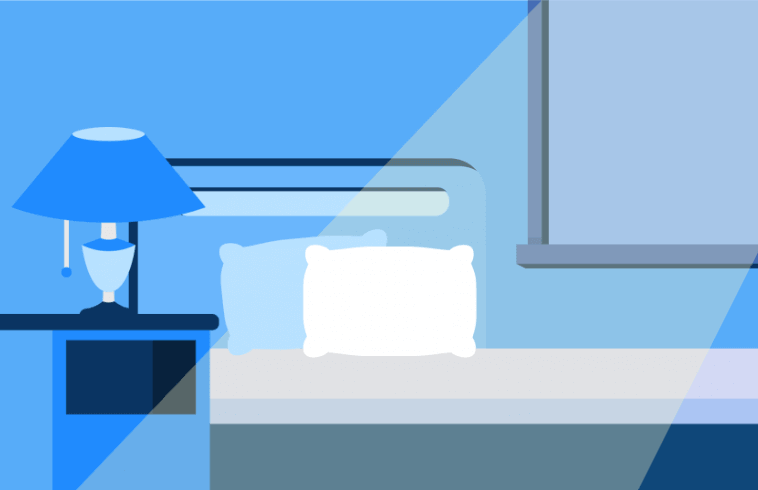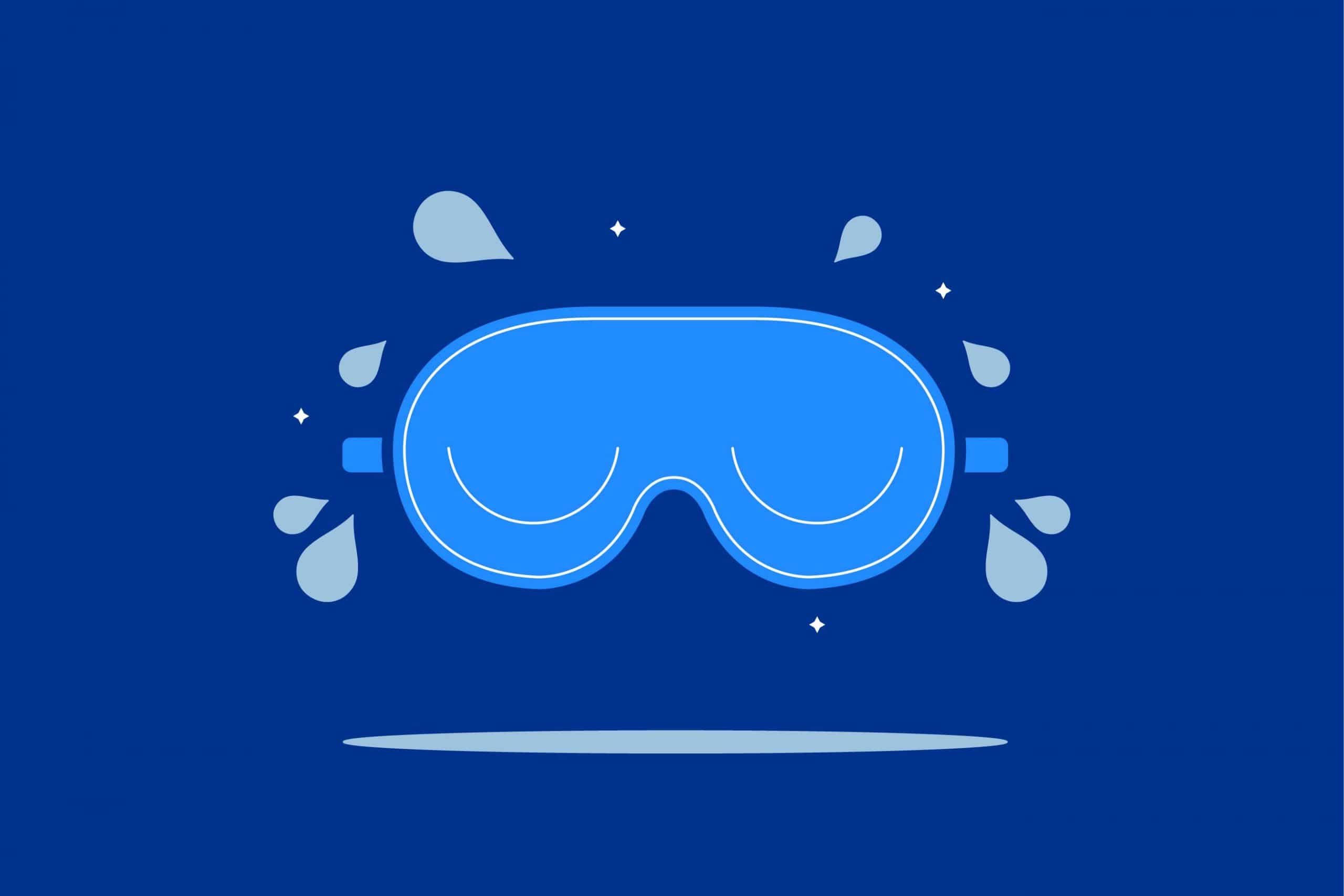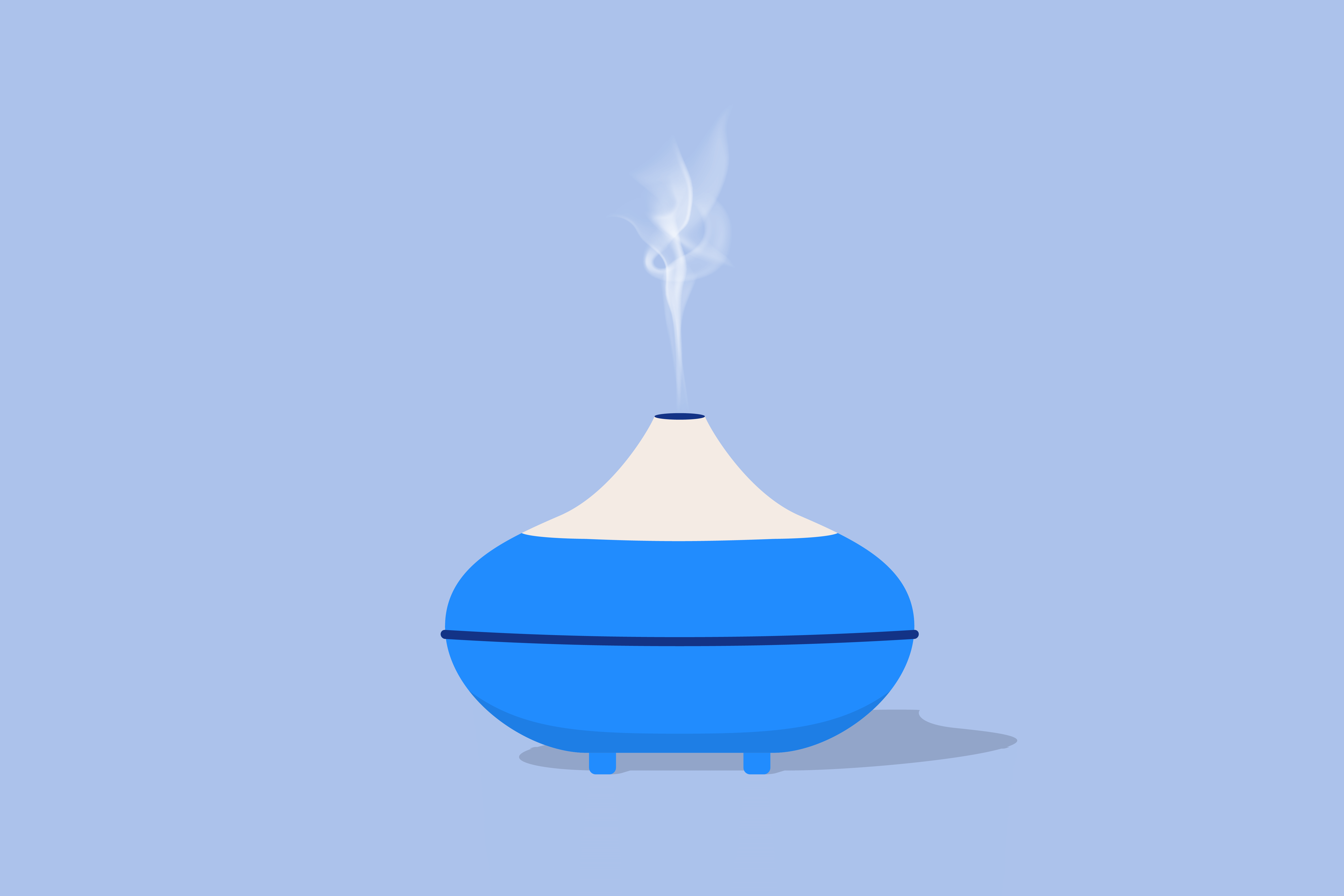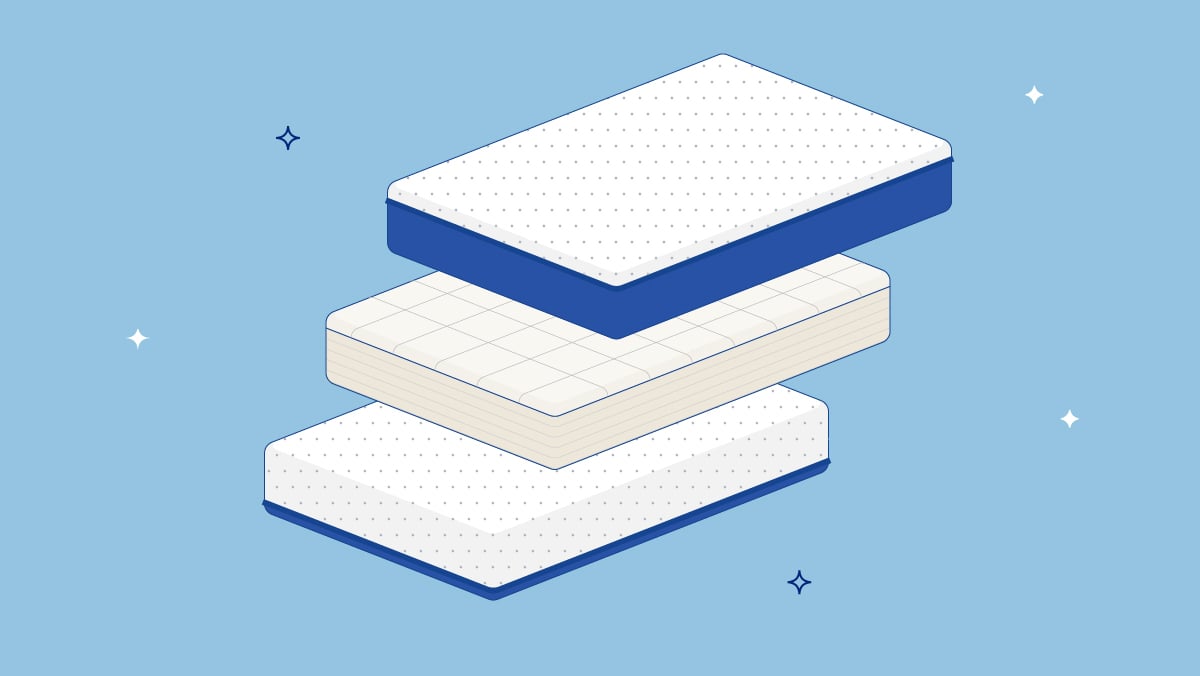
Key Takeaways
- Caffeine Consumption Habits: A large percentage of Americans consume caffeine regularly, primarily to boost energy and enhance cognitive performance. The consumption pattern includes morning, afternoon, and evening intake, with potential generational variations in consumption trends. It is crucial to be aware of the potential effects of caffeine on sleep, particularly when consumed later in the day.
- Variety of Caffeinated Beverages: While traditional coffee remains the preferred beverage for most respondents, there is a significant inclination towards other caffeinated drinks such as cola, iced tea, and energy drinks across different age groups. Generational preferences also play a role in the choice of beverages, with specific age groups showing distinct inclinations towards particular drinks.
- Awareness of Safe Caffeine Consumption: Despite the recommended daily limit set by the FDA, a large proportion of respondents were unaware of this guideline, and a significant percentage exceeded the daily caffeine intake recommendation. Understanding the potential side effects of excessive caffeine consumption is crucial in maintaining a balanced and healthy lifestyle.
For many Americans, waking up simply doesn’t happen without a cup of coffee. Neither does work. Or studying. So you may have already guessed they drink a lot of coffee. But how much is a lot? Who drinks the most exactly? And what happens if they’re unable to get their hands on a cup? We surveyed over 1,000 people who consumed caffeine weekly for some answers.
First, we asked about their preferred drinks, hearing everything from specialty lattes to quick-fix instant coffees. Next, we calculated the exact amount of caffeine in each drink and multiplied that figure by their consumption frequency, giving us the total amount of caffeine respondents drank annually. Ironically, our results were a surprise even to our participants: 80% of respondents had no clue how much caffeine they actually consumed. Keep reading to see just how this overly caffeinated lifestyle impacts Americans today.
Caffeine Culture
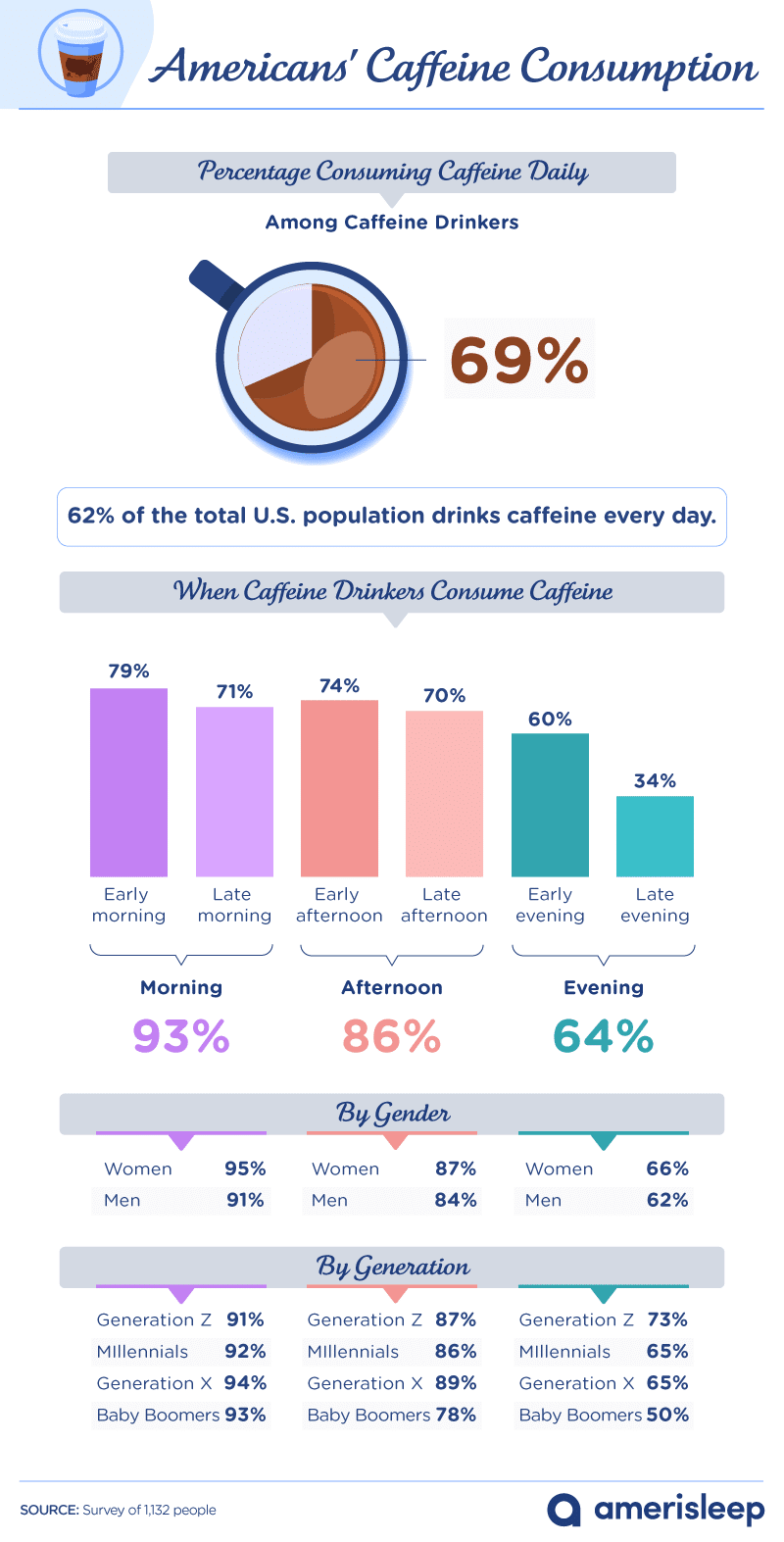 Caffeine has long been recognized as a source of energy, and the majority – 69% – of Americans fuel themselves with that energy daily. The commonly held notion is that caffeine increases wakefulness, elevates your mood, and even enhances cognitive performance.
Caffeine has long been recognized as a source of energy, and the majority – 69% – of Americans fuel themselves with that energy daily. The commonly held notion is that caffeine increases wakefulness, elevates your mood, and even enhances cognitive performance.
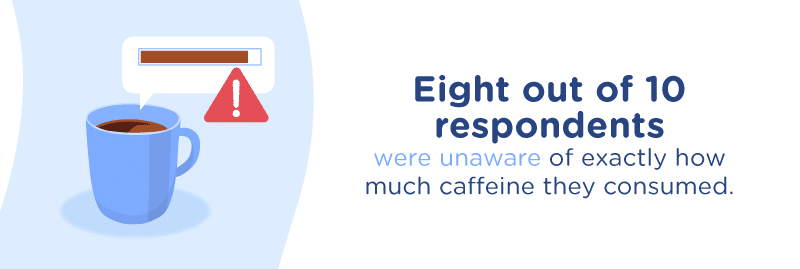 This cognitive jump starts first thing in the morning. In fact, 93% of people surveyed consumed caffeine during traditional breakfast hours. Among those morning caffeine drinkers, 79% drank caffeine in the early morning (before 9 a.m.) and 71% drank caffeine in the late morning (after 9 a.m. and before noon).
This cognitive jump starts first thing in the morning. In fact, 93% of people surveyed consumed caffeine during traditional breakfast hours. Among those morning caffeine drinkers, 79% drank caffeine in the early morning (before 9 a.m.) and 71% drank caffeine in the late morning (after 9 a.m. and before noon).
Nevertheless, caffeine intake occurred continuously throughout the day for many, as 86% also had some caffeine in the afternoon, and another 64% enjoyed it the evening. Among those who did consume caffeine in the evening, more than half restrained themselves to consuming it no later than 7 p.m.. The afternoon caffeine kick might deserve increased popularity, as it may improve mental performance, alleviate fatigue, and enhance concentration and focus.
Interestingly enough, caffeine also demonstrated a generational gap of sorts, with baby boomers being the least likely to consume caffeine in the evening – precisely half of this cohort did so. When it comes to the younger generations, they demand a strong caffeine presence in their system. These generational demands, at least in part, explain the ubiquity of coffee shops in the U.S. and the fact that their numbers keep growing.
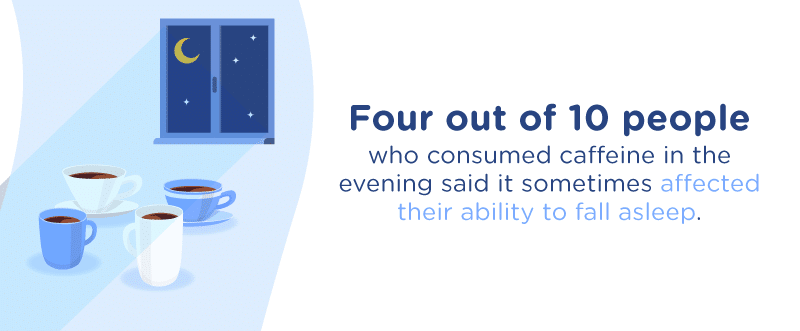 Research suggests that late evening caffeine ingestion can contribute to insomnia and nervousness. Forty percent of respondents who consumed caffeinated food or beverages in the evening said it sometimes inhibited their ability to fall asleep. While coffee may prevent you from yawning throughout the day, immoderate caffeine consumption can keep you up past your bedtime, and even worse, prevent blissful sleep.
Research suggests that late evening caffeine ingestion can contribute to insomnia and nervousness. Forty percent of respondents who consumed caffeinated food or beverages in the evening said it sometimes inhibited their ability to fall asleep. While coffee may prevent you from yawning throughout the day, immoderate caffeine consumption can keep you up past your bedtime, and even worse, prevent blissful sleep.
Bevy of Beverages
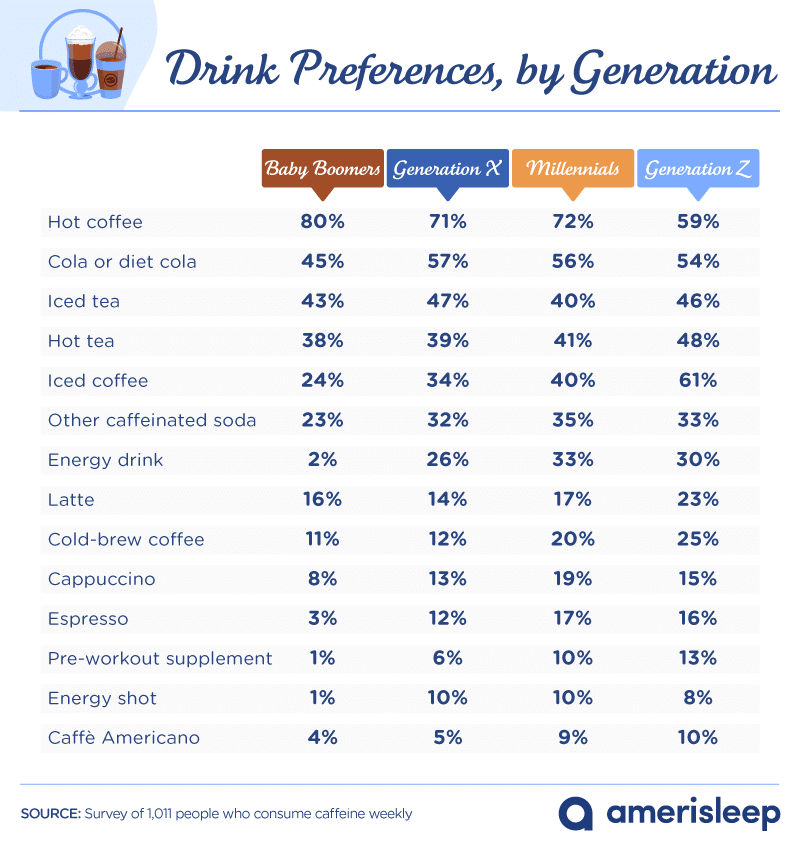 While a regular cup of hot coffee was the most popular beverage across four generations of respondents, they also enjoyed a slew of other beverages to deliver a one-two caffeine punch. Cola or diet cola was the unanimous backup option for everyone from Gen Zers to baby boomers, followed by iced tea. After that, more solid generational nuances began to reveal themselves.
While a regular cup of hot coffee was the most popular beverage across four generations of respondents, they also enjoyed a slew of other beverages to deliver a one-two caffeine punch. Cola or diet cola was the unanimous backup option for everyone from Gen Zers to baby boomers, followed by iced tea. After that, more solid generational nuances began to reveal themselves.
Just 2% of baby boomers said they sipped on the occasional energy drink, compared to approximately a third of millennials and Gen Zers each. The youngest generation was also particularly infatuated with iced coffee: 61% of Gen Zers said they enjoyed this type of caffeinated drink, far more than millennials (40%), Gen Xers (34%), and baby boomers (24%). Meanwhile, millennials were more interested in enjoying a cappuccino than any other generation, and they tied with Gen Xers in their desire for energy shots (10% each, compared to 8% of Gen Zers and 1% of baby boomers).
Exceeding the Limit
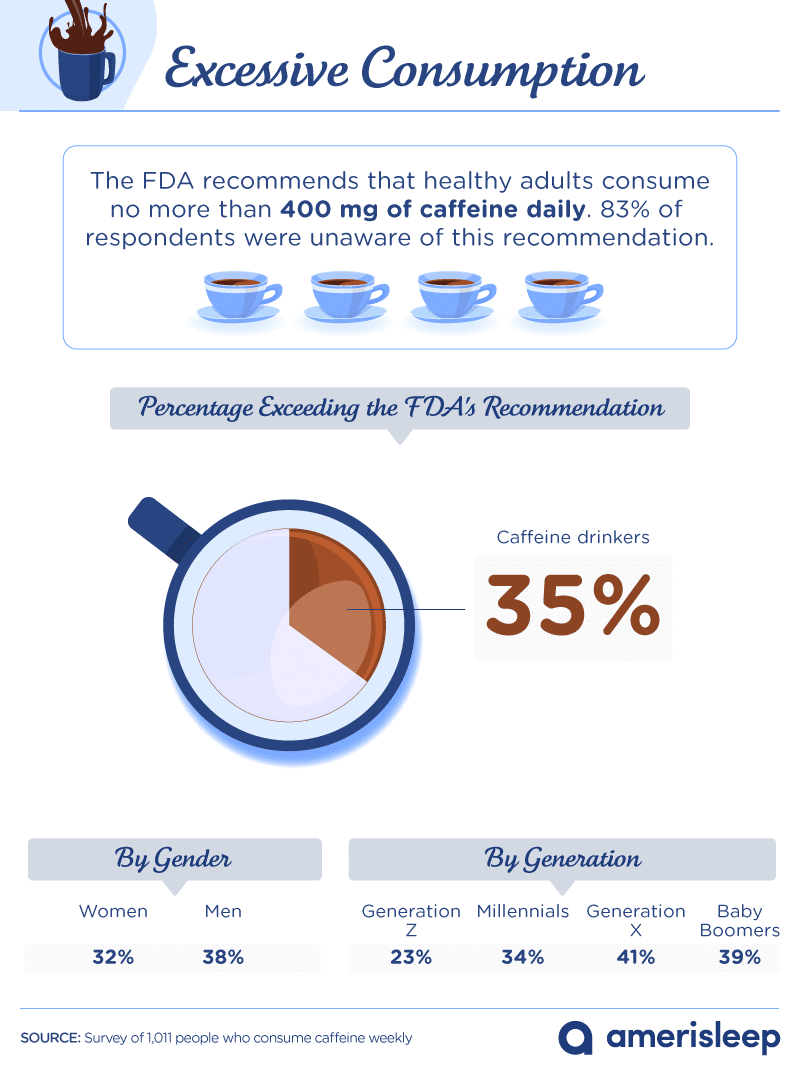 According to the Food and Drug Administration (FDA), caffeine intake can be a regular part of a person’s diet. In fact, studies have found that drinking caffeinated beverages is associated with an abundance of potential protective health benefits like boosting long-term memory and lowering the risk of Type 2 diabetes. On the other end of the argument, excessive consumption may pose alarming health risks.
According to the Food and Drug Administration (FDA), caffeine intake can be a regular part of a person’s diet. In fact, studies have found that drinking caffeinated beverages is associated with an abundance of potential protective health benefits like boosting long-term memory and lowering the risk of Type 2 diabetes. On the other end of the argument, excessive consumption may pose alarming health risks.
The FDA considers 400 milligrams, or the equivalent of four to five cups of coffee, to be safe for most healthy adults, yet 83% of respondents were unaware of this guideline. Further, over a third of Americans exceeded this recommendation daily. While caffeine overdoses are rare, unpleasant side effects are inevitable if a high dose is consumed. Some of these negative consequences may include but are not limited to uncomfortable jitteriness, insomnia, or an upset stomach. However, adverse effects vary to a degree and are dependent on a person’s sensitivity to caffeine as well as the rate at which it’s metabolized.
When it comes to exceeding the safety guideline, differences were observed between the genders: Men (38%) were slightly more likely than women (32%) to consume more than 400 mg of caffeine a day. Along generational lines, older Americans were far more likely to surpass the daily limit when compared to their younger counterparts. Forty-one percent of Gen Xers and 39% of baby boomers pushed their caffeinated boundaries to the limit, as opposed to millennials and Gen Zers with only 34% and 23% breaching the caffeine maximum, respectively.
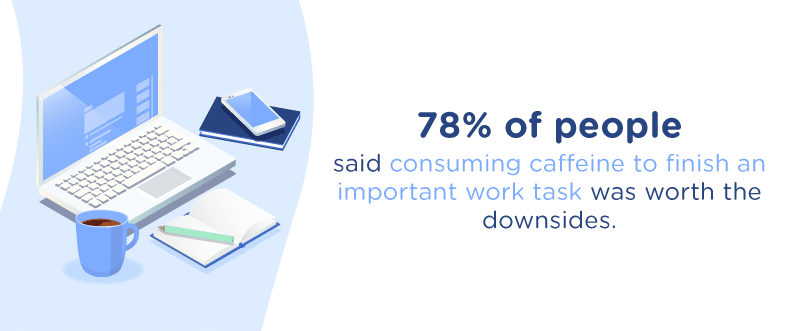 Understanding potential side effects of caffeine, the majority of Americans – 78% – still believed ingesting caffeine to complete an important work assignment was well worth it. Beyond the midday energy boost sought out by tired employees, fostering a coffee culture at work lends itself to a relaxing environment.
Understanding potential side effects of caffeine, the majority of Americans – 78% – still believed ingesting caffeine to complete an important work assignment was well worth it. Beyond the midday energy boost sought out by tired employees, fostering a coffee culture at work lends itself to a relaxing environment.
Caffeine Quantified
 Americans drink millions of cups of joe every day. This figure may not come as a surprise considering the
number of Americans regularly drinking java is on the rise.
Verified Source
Healthline
Offers well-researched articles on all areas of health, and every post is peer-reviewed by a team of medical experts.
View source
We found that in a single year, the average caffeine drinker consumes the equivalent of 799 servings of coffee, which translates to nearly 2.2 10-ounce cups of coffee per day.
Americans drink millions of cups of joe every day. This figure may not come as a surprise considering the
number of Americans regularly drinking java is on the rise.
Verified Source
Healthline
Offers well-researched articles on all areas of health, and every post is peer-reviewed by a team of medical experts.
View source
We found that in a single year, the average caffeine drinker consumes the equivalent of 799 servings of coffee, which translates to nearly 2.2 10-ounce cups of coffee per day.
Our study found that the older you are, the more coffee you consume. Baby boomers drink an average of almost 900 cups of coffee a year, which is over 100 cups more than millennials and 200 more than Gen Zers. Higher overall coffee consumption has proven to increase cognitive performance in older adults, which is enough of a reason to boost their annual intake.
The Struggle Is Real
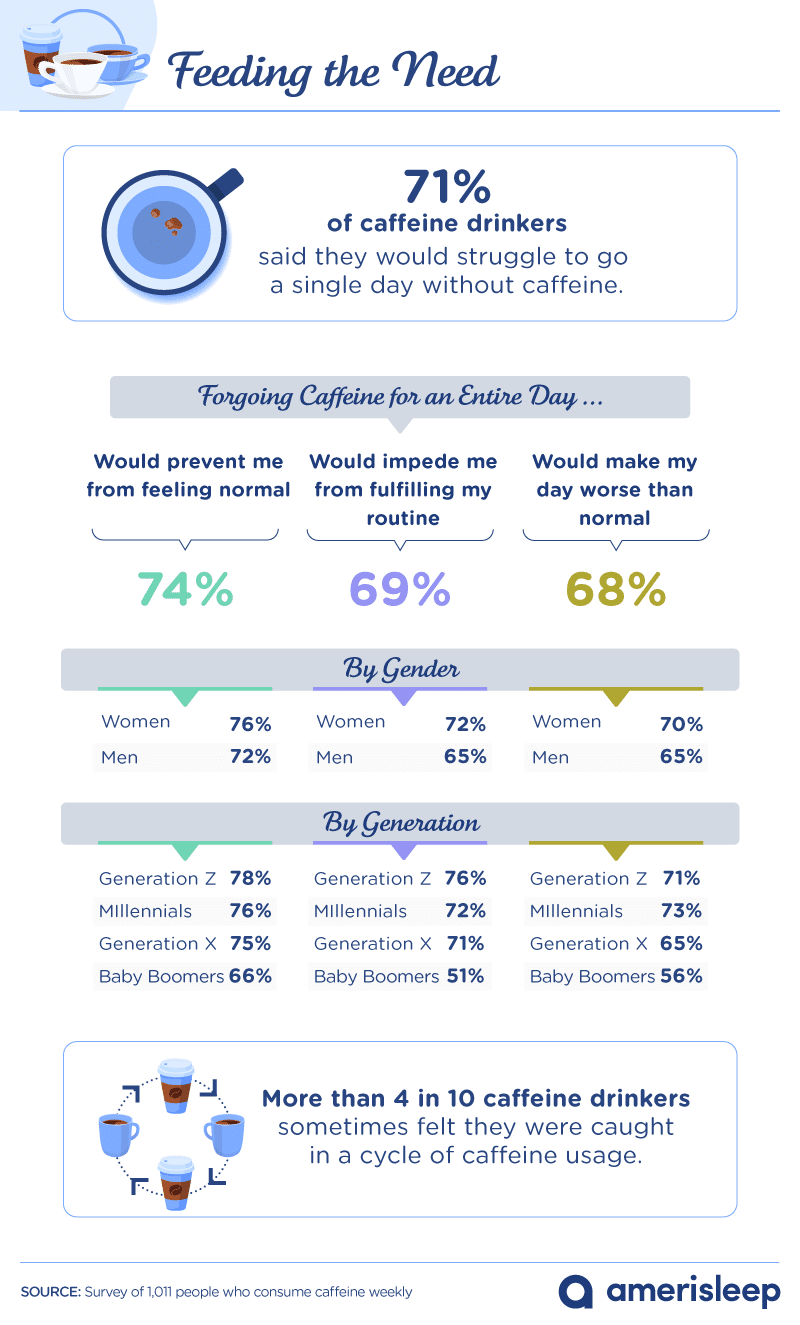 Scenario: You snooze your alarm clock one too many times, and now you’re running late to work. Having missed out on your daily dose of morning caffeine, how does the rest of your day turn out? Well, if you’re like 74% of respondents, then you won’t feel normal, let alone great. Seventy-one percent of caffeine drinkers said they would struggle to go a single day without the natural stimulant. Perhaps these findings speak to a larger cultural fixation rather than a casual consumer habit.
Scenario: You snooze your alarm clock one too many times, and now you’re running late to work. Having missed out on your daily dose of morning caffeine, how does the rest of your day turn out? Well, if you’re like 74% of respondents, then you won’t feel normal, let alone great. Seventy-one percent of caffeine drinkers said they would struggle to go a single day without the natural stimulant. Perhaps these findings speak to a larger cultural fixation rather than a casual consumer habit.
The results also revealed that 68% of Americans were concerned their day would be worse than normal without their daily caffeine fix. Women were more likely than men to subscribe to these notions, although the gender gap was slim across these beliefs. Younger generations (Gen Zers and millennials) had more reasons to report these feelings compared to older generations (Gen Xers and baby boomers). With more than 4 in 10 respondents occasionally feeling as if they were caught in a vicious caffeine cycle, the thought of curtailing consumption wasn’t feasible.
Moderation Is Key
To put it bluntly, Americans are a highly caffeinated bunch. Responses expressed a heavy dependency on caffeine to perform their day-to-day functions successfully. While some may rely on coffee for a variety of health benefits, most people simply want to get through their daily routines and possibly prevent a yawn here and there. Caffeine takes hours to wear off and it can still affect your sleep as bedtime approaches.
While it seems difficult to break an ongoing caffeine cycle, maintaining a healthy sleep cycle is vital for optimal performance. So if you’re not interested in weaning off caffeine, at least consume your beverage of choice earlier in the day to minimize its effect on sleep. Also, make sure to get your sleep-related information and supplies from truly experienced professionals.
At Amerisleep, we don’t just make an amazingly comfortable mattress, we’ve amassed thousands of hours of research identifying practices that optimize your sleep. From finding the best mattress to match your sleep style to creating the perfect sleep environment and following healthy routines, we’ve (literally) got your back.
Methodology and Limitations
We surveyed 1,132 people, 1,011 of who drank caffeine at least weekly. To ensure that all respondents took our survey seriously, each respondent was required to identify and correctly answer an attention-check question. In many cases, questions and responses have been rephrased for clarity or brevity. To help ensure statistical accuracy, outliers have been removed where appropriate. These data rely on self-reporting, and potential issues with self-reported data include exaggeration, selective memory, and attribution errors on the part of respondents.
To calculate caffeine consumption for each respondent, we used the following methodology: Respondents were asked which caffeinated beverages they consumed weekly, how frequently they consumed each beverage, and the serving sizes in ounces of each beverage they consumed. For each type of beverage, we calculated the average caffeine content per ounce using data from caffeineinformer.com. Using the data from each respondent and the caffeine content averages, we calculated how much caffeine each respondent consumed.
Fair Use Statement
Would these findings be of interest to your caffeinated readers? We encourage you to share the images and information presented in this study for noncommercial reuse. Before sipping your next cup of joe, be sure to link back to this so that our authors can receive proper credit for their contributions.
About the author
McKenzie Hyde is a Certified Sleep Science Coach and a full-time writer specializing in sleep health and the mattress industry. With a Master of Arts degree in literature and writing from Utah State University, McKenzie combines her passion for writing with her in-depth knowledge of sleep science. Her articles cover a wide range of topics, including best sleep practices for students, the consequences of sleep deprivation, and choosing the right mattress for back pain relief. McKenzie's dedication to delivering accurate and informative content makes her a valuable contributor to the field of sleep health.
View all posts

